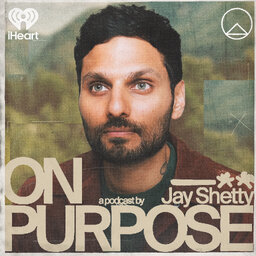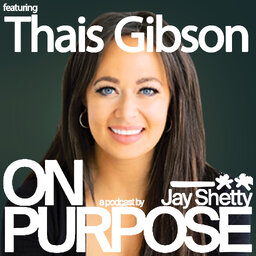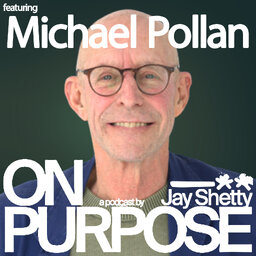If You've Been Feeling Drained... Listen To This (9 Steps To Recover And Avoid Burnout)
Do you often feel exhausted or burnt out?
Are you struggling to manage your stress levels?
Today, Jay talks about exhaustion, burnout, and stress, highlighting their prevalence with statistics showing that a significant portion of young adults and women report feeling drained. He introduces a practical approach to tackle these challenges, encapsulated in the "triple A" formula—Accept, Action, Attention—which encourages acknowledging negative feelings, taking actionable steps to address them, and paying mindful attention to one's mental state
Jay also introduces the concept of "reset periods," whether it's an hour, half-day, or full day, to allow for complete mental and physical rejuvenation. The importance of self-compassion is also emphasized, encouraging individuals to replace inner criticism with supportive self-talk, which can significantly improve overall well-being.
In this episode, you'll learn:
How to break negative thought cycle
How to manage your energy levels
How to use stress strategically
How to practice self-compassion
How to get out of stressful situation
Don’t let exhaustion control your life—take action today and start feeling refreshed and empowered. Listen now and share with someone who needs a boost!
With Love and Gratitude,
Jay Shetty
What We Discuss:
00:00 Intro
01:06 Do You Feel Drained?
03:10 #1: Learn to Break Repetitive Thoughts
06:27 #2: You Don’t Need to Be on Full Energy All the Time
10:20 #3: Learn to Say NO
14:05 #4: Be Strategic with Your Time
17:02 #5: Have a Reset Day
18:35 #6: Be Kind to Yourself
19:59 #7: Allow Yourself to Vent and Let It Out
21:24 #8: Get a Restful Sleep
23:00 #9: Wash Your Mind the Night Before
In 1 playlist(s)
On Purpose with Jay Shetty
My name is Jay Shetty, and my purpose is to make wisdom go viral. I’m fortunate to have fascinating …Social links
Follow podcast
Recent clips

Stop Trying to “Win” An Argument With Your Partner! (THIS Shift Will Turn Conflict into Communication)
38:35

Relationship Expert Thais Gibson: Do You Keep Attracting The Same Emotionally Unavailable Partner? (Use THIS Attachment Reset To Break The Cycle And Choose Better Partners)
1:44:33

Michael Pollan: The Hidden Cost Of Constant Distraction (Use THIS Practice To Reclaim Your Attention, Clarity, And Inner Freedom)
1:20:39
 On Purpose with Jay Shetty
On Purpose with Jay Shetty